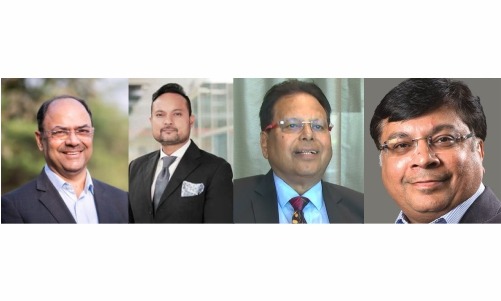The Union health ministry will now closely review the recommendations of the Patient Safety and Access Initiative of India Foundation (PSAIIF) to improve healthcare services in the country. The government sees the need to improve the healthcare delivery as C-19 pandemic has brought out the disparities in the system.
The Foundation, which completes ten years of its existence, has put forth a four-point recommendation to the government where it insists people should have cost-effective choices at the health and wellness centres (H&WC), CGHS and ESIC approved medical centres, besides hospitals managed by the state and Central governments without any discrimination and bias.
In a virtual dialogue with PSAIIF members, Rajesh Bhushan, secretary, ministry of health & family welfare said that every effort will be made to look into the suggestions to handle the issues confronting medical care for quality and affordable access.
“We are looking to develop a multi-stakeholder consultation module in order to effectively facilitate implementation of the various schemes across 11 ministries: health, commerce, chemicals & fertilizers among others in the interest of the patients. The initiative emerges from the lessons learnt from ongoing C-19 pandemic, Bhushan said.
1. In its proposals, PSAIF first sees the need to engage with patient groups and expand Ayushman Bharat to cover all vulnerable and senior citizens irrespective of their economic profile and digitize patient records with total data privacy.
2. Secondly, it mandates a multimedia campaign and a citizen portal similar to Jago Grahak Jago to build a robust awareness and education initiative for patients and care givers to access safe, credible and quality information to make an informed choice in medical consultation. It sees the need to control misleading, deceptive claims promised by the manufacturers and healthcare service providers to curb the menace of spurious and not-of-standard medicines and devices. There is a need to discourage self-medication, irrational use of antibiotics, medicines, diagnostics by linking with several schemes managed by the Pharmacovigilance Programme of India, Haemovigilance Programme of India, Materiovigilance Programme of India, Consumer Awareness & Publicity and Price Monitoring and others.
3. Thirdly, for Universal Health Coverage to take, we see digital technology as a key enabler. The government must consider increasing healthcare spends from 1 to 5% and increase subsequently to 7% of GDP, investing at least 5% of the GDP in healthcare. There should be focus on innovation, R&D and use of modern technology. People must be able to access healthcare without facing financial hardships, said Bejon Misra, founder, PSAIIF.
In the National Digital Health Mission, e-pharmacy would be a vital tool and therefore government should notify the same at the earliest, said Dr BR Jagashetty, former National Adviser (Drugs Control) to MoHFW & CDSCO, even the prescriptions should have the brief diagnosis based on which medicines are prescribed to have proper prescription audit.
The OTC drugs must be defined and listed with the guidelines. The order of direction U/s 33P issued to all state licensing authorities not to grant licenses to brands but only generic names needs to be withdrawn or modified suitably to have proper index of all medicines produced/imported, he added.
4. The fourth agenda is to build a common platform to promote quality healthcare bringing in all stakeholders with various Ministries working in the interest of the patients, said Misra.






